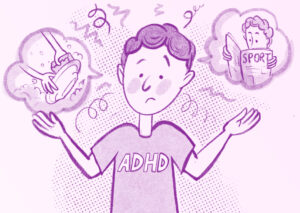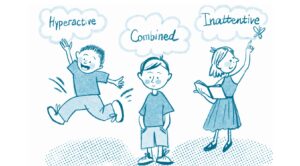Mental health has become a mainstream topic in recent years—and rightfully so. More people are now open to conversations around emotional well-being, therapy, and self-care. But there’s still a common misconception that needs clarification: mental health is not the same as mental illness.
Understanding the distinction between mental health and mental illness is crucial, not just for those experiencing emotional difficulties, but for society at large. Recognizing the difference helps reduce stigma, promotes early intervention, and encourages people to seek help before things escalate.
In this in-depth blog, we’ll explore:
- What mental health really means
- What constitutes mental illness
- How the two are connected yet different
- Why it’s important to distinguish them
- When and how to seek support
Let’s dive in.
Table of Contents
ToggleWhat is Mental Health?
Mental health refers to your emotional, psychological, and social well-being. It influences how you think, feel, act, make decisions, and handle stress. Just like physical health, your mental health can fluctuate from day to day and across different phases of life.
Key components of good mental health include:
- A sense of purpose and belonging
- The ability to manage emotions effectively
- Healthy coping mechanisms for stress
- Positive relationships
- Clear decision-making abilities
- Self-awareness and resilience
Mental health is not the absence of problems—it’s about how well you function despite life’s ups and downs.
What is Mental Illness?
Mental illness (or mental disorder) refers to clinically diagnosable conditions that affect mood, thinking, behavior, and functioning. These conditions vary in severity, duration, and impact on daily life.
Common types of mental illness include:
- Depression
- Anxiety Disorders
- Bipolar Disorder
- Schizophrenia
- Obsessive-Compulsive Disorder (OCD)
- Post-Traumatic Stress Disorder (PTSD)
- Eating Disorders
- Addiction and Substance Use Disorders
These conditions are usually diagnosed by licensed psychologists, psychiatrists, or mental health professionals based on specific criteria outlined in the DSM-5 (Diagnostic and Statistical Manual of Mental Disorders).
The Core Difference: Spectrum vs Diagnosis
The most important distinction is this:
- Mental health is a state of being—we all have it, and it can be good, poor, or somewhere in between.
- Mental illness is a medical condition—not everyone will experience it, and it typically requires professional treatment.
Think of mental health as a continuum. We move along this spectrum depending on our circumstances, coping skills, and support systems.
Mental illness, however, is when symptoms persist and interfere with one’s daily functioning, requiring targeted interventions like therapy, medication, or both.
Can You Have Poor Mental Health Without Mental Illness?
Yes. You may be feeling low, anxious, unmotivated, or emotionally numb without meeting the criteria for a mental illness diagnosis. These periods of emotional turbulence are still important and deserve attention.
Examples:
- Stress from exams or work deadlines
- Grief after losing a loved one
- Burnout from overworking
- Temporary loneliness or confusion
These don’t automatically mean you’re mentally ill, but they are indicators that your mental health needs care—just like you’d rest when you catch a cold.
Can You Have Mental Illness and Still Have Strong Mental Health?
Absolutely. Many people diagnosed with mental illness live meaningful, productive lives, especially when their condition is well-managed.
For example, someone with bipolar disorder may have excellent mental health between episodes if they:
- Follow a treatment plan
- Maintain a support network
- Have strong coping skills
- Stay emotionally self-aware
This is why reducing stigma is so important. Having a mental illness doesn’t make someone weak or incapable—it just means they may need different tools and support.
Why the Distinction Matters
Understanding the difference between mental health and mental illness helps in several key ways:
1. Reducing Stigma
Many people fear the label of “mental illness” and avoid seeking help. Recognizing that mental health is a natural part of life—and not just a diagnosis—normalizes emotional struggles.
2. Encouraging Early Intervention
When we treat mental health as a continuum, we create space to seek support before things spiral into a full-blown disorder. Early intervention leads to better outcomes.
3. Improving Self-Awareness
When people learn to monitor their mental health regularly, they develop emotional intelligence, resilience, and the ability to self-regulate.
4. Helping Loved Ones Understand
When friends and family understand the spectrum of mental health and the specifics of mental illness, they’re better equipped to offer support and compassion.
When Should You Seek Help?
Whether you’re managing stress or suspect a deeper issue, you don’t need to wait for a crisis to speak with a psychologist. Here are some signs it’s time to get support:
- Feeling persistently sad or empty
- Intense anxiety, panic attacks
- Difficulty concentrating or making decisions
- Withdrawal from social activities
- Excessive irritability or anger
- Disturbed sleep or appetite
- Thoughts of self-harm or hopelessness
A qualified psychologist can help assess whether you’re dealing with poor mental health or a diagnosable mental illness and provide a tailored path forward.
How Therapy Helps Both Mental Health and Mental Illness
Therapy isn’t only for mental illness. It’s also highly effective for improving overall mental health, even if you’re not experiencing a disorder.
Benefits include:
- Gaining self-awareness
- Processing emotions in a safe space
- Strengthening relationships
- Building resilience and stress tolerance
- Developing problem-solving and coping skills
If you’re diagnosed with a mental illness, therapy becomes even more crucial. It offers structure, understanding, and proven techniques for symptom management.
🧠 Mental Health Tips for Everyone
Regardless of whether you’re dealing with a mental illness, here are daily habits to support your mental well-being:
- Get enough sleep
- Practice mindfulness or meditation
- Exercise regularly
- Limit social media and screen time
- Stay connected with friends and family
- Avoid alcohol or drugs as coping tools
- Set realistic goals
- Take breaks when overwhelmed
- Express gratitude regularly
🧑⚕️ Meet Arpan Sarma – Psychologist in Kolkata
Whether you’re navigating emotional burnout or dealing with symptoms of a mental disorder, Arpan Sarma, a trusted psychologist in Kolkata, offers professional and compassionate care.
With expertise in:
- Individual counseling
- Mental health education
- Stress and anxiety therapy
- Depression and trauma recovery
- Cognitive behavioral techniques
Arpan Sarma can help you gain clarity, cope better, and rediscover your inner strength.
👉 Book your confidential therapy session now.







